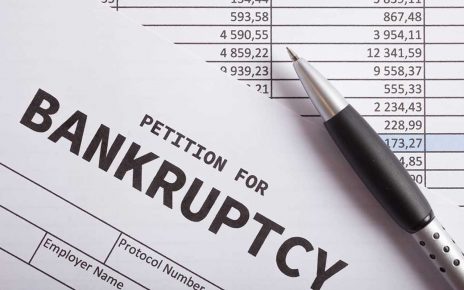This is part two of our discussion on this topic – for part i, visit the personal bankruptcy tips part i here on the DebtCreditLoans.net website.
Before deciding to file for bankruptcy, you may want to look into other options. Remember, when you file for bankruptcy, you are greatly hurting your credit score, which in turn, can prohibit you from buying a house, car, and other big purchases. Consider safer, alternative methods first, such as consumer credit counseling.
After the completion of filing for bankruptcy, get to work reestablishing your credit score. Keep in mind that thirty-five percent of the credit score is calculated using payment history. Keep your payments on time, because you will have to battle the bankruptcy on your report for the next ten years.
If you are planning to file for bankruptcy, be certain not to transfer any of your belongings or valuables to another person. This includes taking your name off of joint bank accounts or other financial assets. The court will be looking for anything of value in order to repay creditors, and you will be asked under oath whether you have left anything out. If you do not tell the truth, you may be charged with perjury and could possibly spend time in jail. Remember, honesty is the best policy.
If you have many non-dischargeable debts, filling for bankruptcy may not be very beneficial or advisable. Non-dischargeable debts include student loans, taxes, child support payments, fraudulent debts, and alimony payments. Filing for bankruptcy will not dissolve any of those debts and will only make it harder for you to secure credit in the future.
If you are planning to file for bankruptcy, you must seriously take into account anyone who has cosigned on a loan for you. For instance, if a friend or relative is a cosigner on your auto or home loan, they will be held financially responsible to pay the debt in the event you file for bankruptcy. This can create problems in relationships between family members and friends. That is why it is not advisable to cosign for anyone or ask someone to cosign for you, including your children. It could ruin someone’s life.
Pay as much attention as possible to the information in your required education classes. Remember that your goal is to avoid having to file for bankruptcy again in the future. If you learn better financial management skills, you’ll be able to use your bankruptcy as an opportunity to start over.
A good personal bankruptcy tip is, to be careful up until the time that you file for bankruptcy. If they see that you’ve just been driving the debt up higher, and higher to take advantage of the system, they’ll probably prevent you from filing for bankruptcy altogether. Don’t let this happen.
Speak with an attorney. If you’re filing for bankruptcy, spending more money is probably the last thing on your mind. Investing in a good attorney, however, can end up saving you a lot of money in the long run. Don’t take any unnecessary risks when it comes to your finances.
Prepare yourself prior to filing or hiring a lawyer to pursue bankruptcy. You should gather all of your records pertinent to filing such as an itemized list of your assets, lists of bank accounts, property deeds, and other financial information. You should also have your last three years tax returns handy for reference.
Talk to several lawyers before choosing one to file your bankruptcy. Many lawyers off a free consultation so take advantage of these. Meet with as many lawyers as you have time for to find the perfect one for your case. You want to feel comfortable with your lawyer and make sure he is knowledgeable.
Bankruptcy should not harm you for the rest of your life. Just because you have met harsh times, does not mean that there is no sign for hope. Now that you know how to live a better life while you get through your bankruptcy, you can focus on rebuilding your finances and your credit history.


